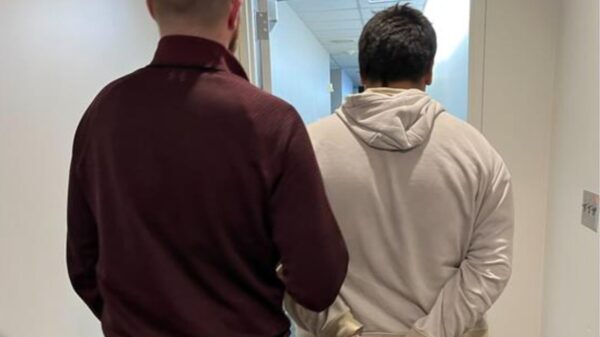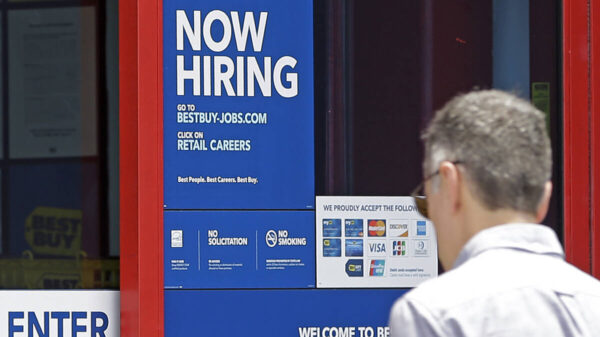URGENT UPDATE: The latest Bureau of Labor Statistics report reveals a shocking downturn in the U.S. job market, with only 22,000 jobs added in August, marking the weakest labor market growth in five years. The unemployment rate has surged to 4.3 percent, the highest level since 2021, raising alarms about economic stability.
This alarming statistic indicates that the labor market is not only sluggish but also disproportionately affecting marginalized communities. The number of unemployed individuals actively seeking jobs has reached its highest level in nearly a decade, with about 25 percent of job seekers facing extended unemployment of six months or more. This trend underscores an urgent economic crisis that many Americans will feel acutely.
Specific sectors are feeling the brunt of this downturn. Manufacturing has seen significant job losses, exacerbated by trade policies from the Trump administration, while health care, once a robust source of employment growth, is now faltering under the weight of anticipated Medicaid cuts.
The report further highlights a troubling spike in unemployment among Black Americans, with the rate climbing to 7.5 percent in August, up from 6 percent in May. The Joint Center for Political and Economic Studies warns this is the highest Black unemployment rate since late 2021, with young Black workers facing a staggering 16.8 percent unemployment rate, even as overall youth unemployment has slightly decreased.
Gabrielle Smith Finnie, a senior policy analyst at the Joint Center, stated, “Each jobs report since the summer shows an unsteady labor market and its disproportionate impact on Black workers.” The widening gap between Black unemployment and national averages has reached a critical 3-point difference, signaling an urgent need for policy intervention.
These economic challenges are compounded by layoffs and record levels of private debt, which have led to decreased consumer spending. As job losses mount, many Black-owned small businesses are feeling the pressure, with reduced customer spending threatening their survival.
The ramifications extend beyond the economic sphere. Black immigrants, particularly those without permanent legal status, face increased deportation risks, impacting local economies. The decline in foot traffic at Black-owned businesses due to a hostile environment further exacerbates these challenges.
Additionally, the economic decline has revived discussions around diversity and inclusion initiatives, which have been targeted under the current administration. Some young Black workers have resorted to boycotting firms that fail to support equitable practices, highlighting the societal implications of these economic trends.
In a stark reminder of the interconnectedness of economic health, experts point out that the decline in job security for Black workers often foreshadows broader economic troubles for the entire country. Economists Marianne Cooper and Anna Gifty Opoku-Agyeman recently emphasized this point, stating, “Black women are overrepresented in precarious jobs characterized by low wages, little security, and few benefits.”
As the Federal Reserve prepares to respond to these developments, Massachusetts Rep. Ayanna Pressley has already reached out to Chair Jerome Powell, urging immediate attention to these alarming trends. The current economic landscape reflects a growing crisis that could have lasting repercussions on all Americans.
As the situation evolves, analysts and policymakers will be closely monitoring these trends to formulate effective responses. The implications of this jobs report are profound, demanding urgent attention from both government officials and industry leaders alike.
Stay tuned for more updates on this developing story as the nation grapples with these critical economic challenges.







































































